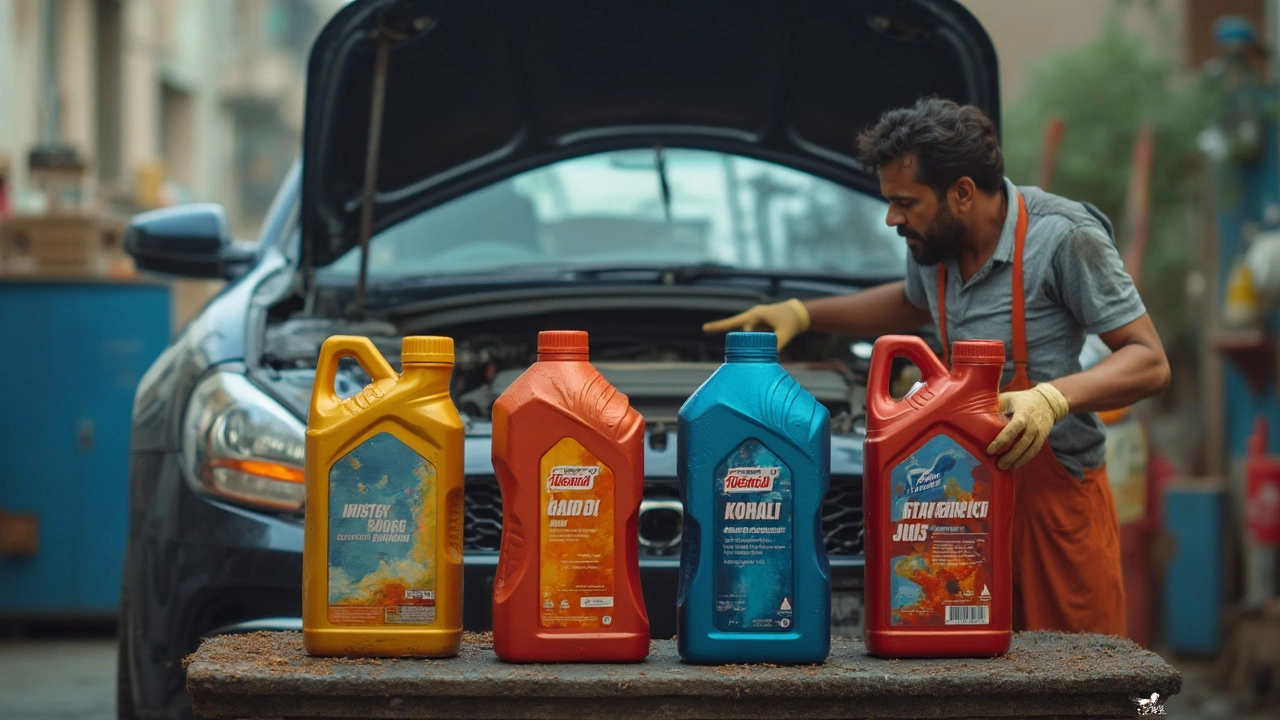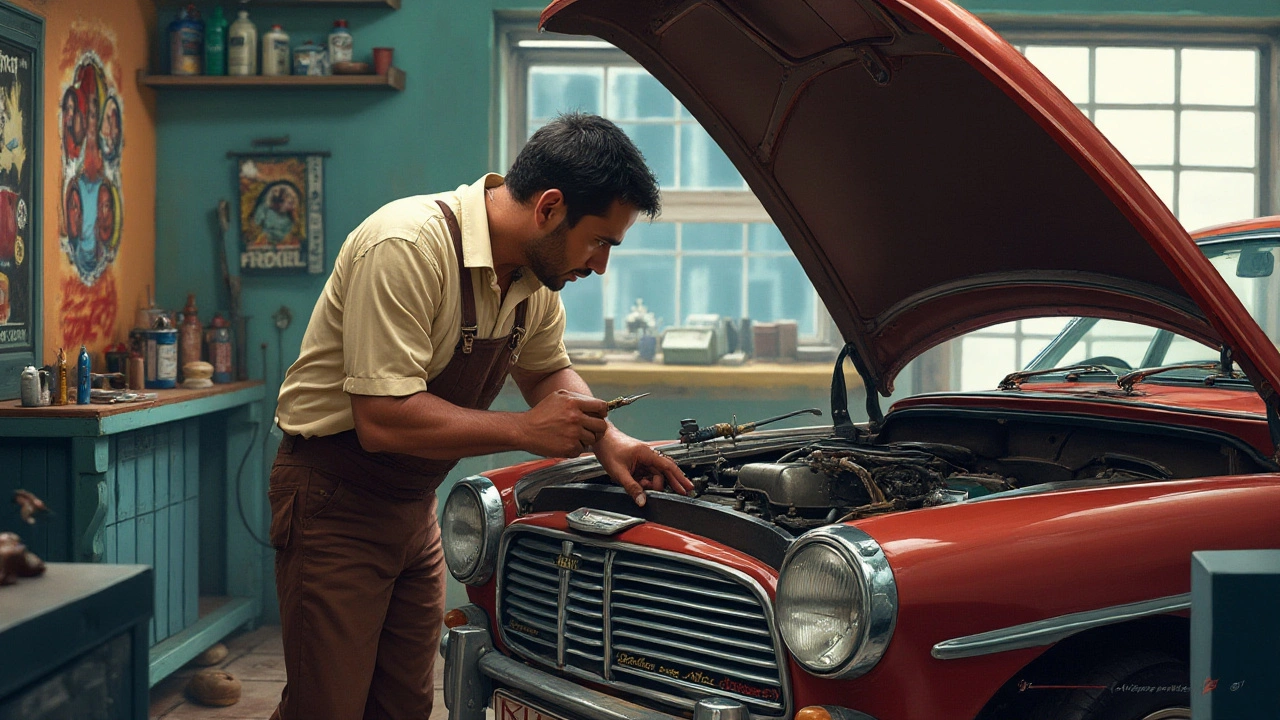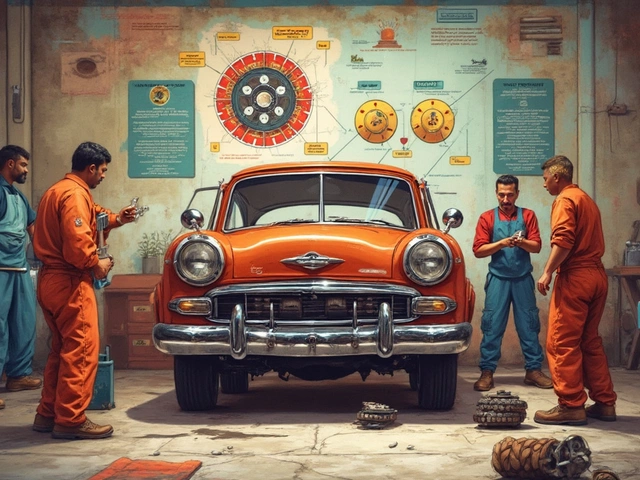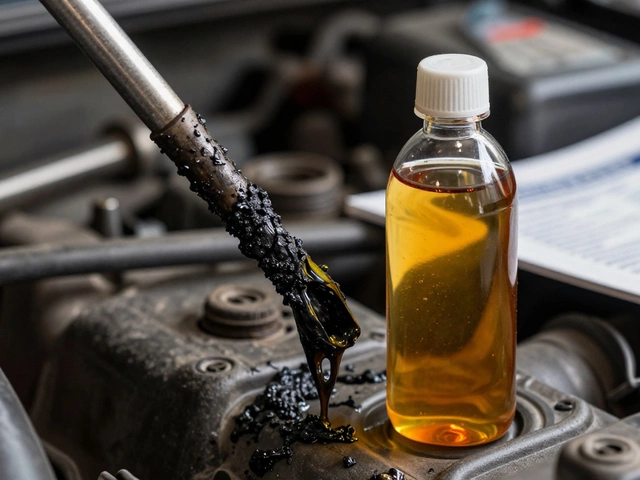
Oil Change: What It Is, Why It Matters, and What Happens When You Skip It
When you hear oil change, the routine service where old engine oil is drained and replaced with fresh lubricant to protect internal engine parts. Also known as engine oil service, it's one of the most basic but critical tasks any car owner can do. It’s not glamorous, but skipping it is like ignoring your heart’s need for clean blood—eventually, everything breaks down.
The engine oil, a specialized fluid designed to reduce friction, cool components, and carry away dirt and metal particles from the engine doesn’t just get dirty—it loses its ability to protect. Over time, heat and contaminants turn it into sludge. That sludge clogs tiny passages, starves bearings of lubrication, and turns your engine into a grinding mess. And the oil filter, the component that traps dirt and metal bits before they circulate back into the engine? If it’s clogged or old, it stops working altogether. You can’t see this happening, but you’ll feel it: louder engine noise, worse fuel economy, or worse, a seized engine.
Most people think they need an oil change every 3,000 miles. That’s an old rule. Modern synthetics can last 7,500 to 10,000 miles, but your driving style matters more than the odometer. If you haul heavy loads, sit in traffic, or drive in dusty conditions, your oil degrades faster. And if you’re seeing signs like dark, gritty oil on the dipstick, a burning smell, or the check engine light coming on, you’re already behind.
What’s worse than skipping an oil change? Thinking you did one when you didn’t. Many shops push unnecessary services. A real oil change isn’t just adding oil—it’s draining the old, replacing the filter, and checking for leaks. If your mechanic didn’t remove the old filter, you didn’t get an oil change. You got a top-up. And top-ups don’t fix dirty oil—they just make it worse.
You don’t need to be a mechanic to check your oil. Pop the hood, pull the dipstick, wipe it clean, stick it back in, and pull it out again. If the oil looks black and thick, or if you can’t see the metal through it, it’s time. If the level is low, top it off—but don’t ignore the real problem. Dirty oil isn’t a warning light. It’s a countdown.
The posts below cover everything from how to spot bad oil before it kills your engine, to what happens when you delay maintenance, to how other systems like your radiator and clutch are tied to oil health. No fluff. No upsells. Just what you need to know to keep your car alive without paying for repairs you could’ve avoided.
-
10 Jun

-
11 May

What Happens If You Put Regular Oil Instead of Synthetic? Real Risks for Your Engine
Putting regular oil instead of synthetic in your engine isn’t just a swap—it can actually change how your car runs. This article breaks down the real differences between regular and synthetic oil, and what could actually go wrong if you use the wrong one. Expect clear tips, facts, and what to watch for with your engine if you made the switch by mistake. Skip the myths and get the real deal you can use right now. Perfect for any driver who wants to keep their car running smooth and avoid headaches. -
28 Jan

Best Time to Drive After Adding Engine Oil
Learning how long to wait before driving after topping up your engine oil can extend your vehicle's lifespan. This article provides insights into the factors that affect this waiting period, including engine temperature and oil type. It offers practical tips for proper car maintenance and highlights potential risks of not following these guidelines. Car owners can enhance their vehicle's performance with these simple steps. -
20 Jan

How Delaying an Oil Change Can Affect Your Engine's Health
Oil changes are a crucial part of vehicle maintenance, and delaying them can have significant consequences on your car's performance and longevity. This article dives into the importance of timely oil changes, the potential risks of neglecting them, and how you can keep your engine in optimal condition. Discover some interesting facts about oil technology and grab useful tips to ensure your vehicle runs smoothly. Understand the basic signs that indicate when an oil change is due and explore the implications of missing those cues.





